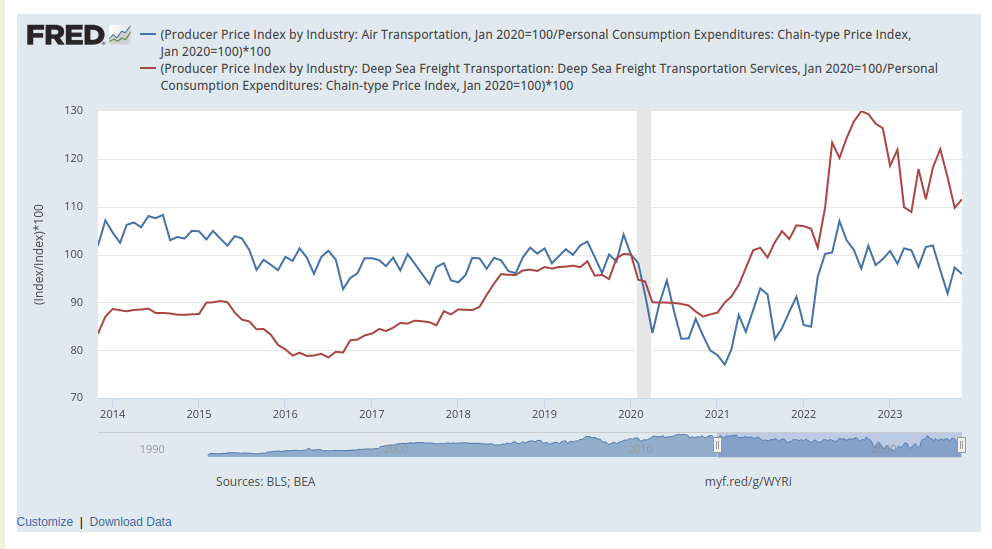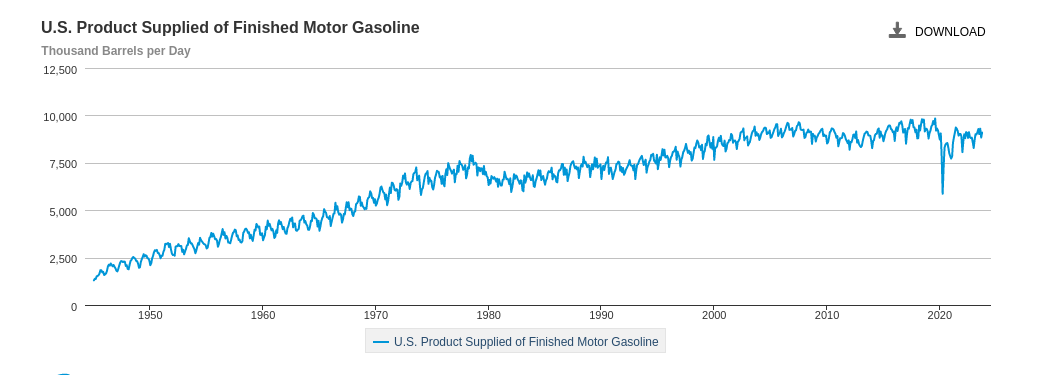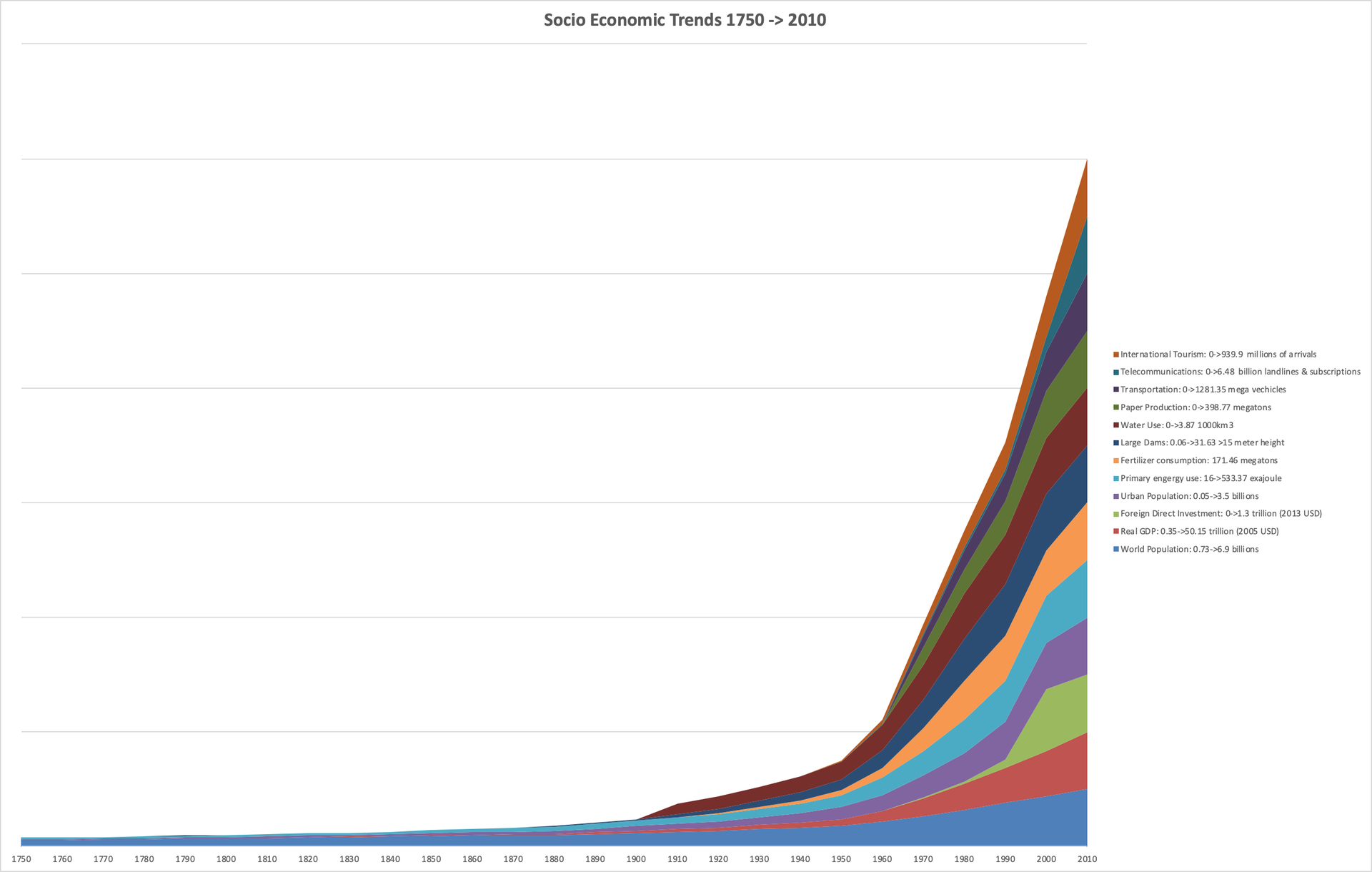AI Efficiency and the Acceleration of Everything

Imagine preparing for a really long hike. There are bears and cougars out there. You need to decide whether to bring bear mace and a gun. They take up precious space in your backpack and over a long hike will slow you down, make you use more energy, and therefore food. Traditionally, you would just bring it because you had no idea where the creatures were. Now, imagine you discover an AI mapping startup which is able to track and predict with their AI models,where the bears and cougars would be in any forest. You sign up and use their technology to help you design your route so you avoid the danger. The AI can make you more efficient! You can avoid bringing the mace and gun, have a lighter pack, and even bring less food than necessary because you will expend less energy. You can walk faster with higher confidence you won’t be mauled. You sign up and use their AI tech for your hike preparation.
This is just an example I made up to illustrate how AI can make you more efficient. Predictive models can increase the efficiency of anything because they can help you avoid waste. Many companies are promoting AI as a way to increase efficiency. Large Language Models and products like ChatGPT have enabled many people to be more efficient in a lot of ways. ChatGPT allows you to write, search, and learn faster. Github CoPilot allows you to write software faster. Adobe integrated generative AI to allow you to edit images faster. Faster. Faster. Faster.
You go out there on your hike, confident you will avoid bears and cougars. You make it there and are happy you used their technology. You use the tech for the next 10 hikes. On the 11th hike, about half way through, you are mauled by a cougar. You die. The model was wrong. You weren’t prepared!
On the other side of the efficiency coin is resiliency. As you make anything more efficient, you lose resilience. Resiliency requires extra resources “just in case”. It Requires bringing the bear mace and gun. Resiliency is always a cost: As you increase resiliency, you decrease efficiency.
Nobody is talking about using AI for resiliency. Nobody wants to pay for a technology which will increase their costs in the long run. Nothing about our society promotes resilience in the business world. Economists don’t have a language or model for it!
When you take efficiency to the extreme, you get deadly fragility. Lean manufacturing has been promoted and pushed for over 30 years globally. Just-in-time manufacturing means you keep low stocks and create needed items on demand. Each supply chain was tuned to support a very narrow variance of demand. When the COVID pandemic spread, demand for some things spiked while others fell dramatically. The variance increased and our supply chains crumbled. Shipping costs spiked non-linearly.

https://fredblog.stlouisfed.org/2022/12/the-swell-of-shipping-costs/
More recently you see this push for efficiency in the Boeing 737 door plug incident. During a flight on January 5th 2024 from Portland Oregon to Ontario, the door plug on a Boeing 737 came off mid flight. After the incident, inspections of planes from several airlines found that bolts holding the plug weren’t tight enough. Fortunately nobody was injured. While the reason is still unknown during the time this article is written, there are hints that the cost cutting mindset of Boeing in the name of efficiency costs safety.
The only language I see from business leaders when talking about the climate crisis is efficiency. They say we need more energy efficiency. That we need to be more efficient in using fossil fuels. However, efficiency has a paradox called Jevons Paradox. What this paradox shows is as you increase the efficiency of using a resource, you end up using more of that resource in aggregate! This paradox works because demand/supply curves are non-linear. Efficiency reduces the cost of using a resource for any given purpose. However, a small cost decrease could increase the demand for that resource non-linearly!
This can be easily demonstrated with the CAFE standards. CAFE standards increased fuel efficiency of all vehicles. This allowed you to drive further for the same cost. A road trip which would have been beyond your budget is now possible. However, what is likely to happen in practice is the miles per person increasing over time.

https://fred.stlouisfed.org/graph/?g=lls
Even though per capita expenditure of energy went down over time because of efficiency gains, aggregate usage went up! That’s Jevons paradox. Demand is non-linear to price. People who couldn’t afford certain forms of energy in the past can now afford to use them.

Efficiency gains will NOT reduce our usage of fossil fuels in the aggregate. We need fossil fuels to be more expensive to use, not less.
So AI’s sales pitch on increasing efficiency, if it works, will reduce our resilience and accelerate our usage of every kind of resource. We are currently experiencing the “Great Acceleration”. Everyone should understand you can’t have exponential growth on a finite planet without end.

After 50 years of the Limits to Growth study from the Club of Rome, the re-calibration of the World3 model is shocking.
We are approaching the physical limits of this planet. In a 2015 paper, Johan Rockström found we already went beyond four of the nine boundaries keeping our planet hospitable to life.
Utilizing AI as an approach to increase our efficiency is a kiss of death. We now need resiliency, not efficiency. We don’t need to further bend upward the exponential curve of growth.
An interesting question I have is: Is it possible to utilize AI to increase resilience? Can it be used on the other side of the coin? Our current approaches are about fitting curves to distributions. I believe we need a completely different approach. Which does not rely solely on optimization but also survivability.
Disclaimer: No AI was harmed in the making of this article.